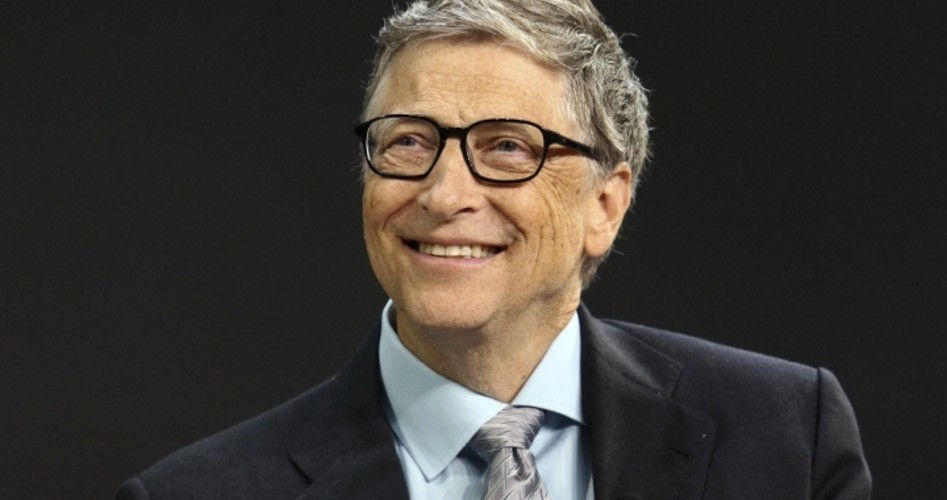How Bill Gates Premeditated COVID Vaccine Injury Censorship
- William

- Apr 6, 2021
- 3 min read

STORY AT-A-GLANCE
Gates supported and helped organize Event 201, a meeting of global "experts" who developed strategies to control a potential pandemic, the population and the narrative surrounding the global event
Communication strategists were employed to help identify and plan for tactics that would control public behavior, improve surveillance and increase the number who would take a vaccination
Social media censorship played prominently in the Event 201 plan, and in the events of 2020, ensuring that accurate information about vaccine development, production and injury was not well disseminated
The NIH produced vaccination communication recommendations that were close to those studied by Yale University, touching on feelings about health, helping others and fear
It is vital to be vigilant and seek the truth so that you can understand how to distinguish between fact and a fictional narrative that promises you liberation but eventually enslaves you
In 2000, everything about Bill Gates' public persona changed. He morphed from a hardnosed and ruthless technology monopolizer into a soft, fuzzy and incredibly generous philanthropist when he and his wife launched the Bill & Melinda Gates Foundation.1
It was a public relations coup. May 18, 1998, the U.S. Justice Department, in collaboration with 20 state attorneys, filed an antitrust lawsuit against Microsoft.2 At that time, the company was 23 years old and was ruling the personal computer market. The Seattle Times described the fallout from the antitrust lawsuit:3
"The company barely escaped being split up after it was ruled an unlawful monopolist in 2000 for using its stranglehold on the PC market with its Windows operating system to cripple competitors, such as Netscape's Navigator Web browser."
How would the world be different today if the company had been split? Yale law professor George Priest described the antitrust lawsuit as "one of the most important antitrust cases of its generation."4 In 2002, a court settlement placed restrictions on Microsoft to curb some of its practices for five years.
It was later extended twice and then expired May 12, 2011. The lawsuit had a dramatic effect on "the emergence of an entirely new field called IP (intellectual property) antitrust," Iowa law professor Herbert Hovenkamp told the Seattle Times.5
Later, large sums donated from the foundation made the news multiple times, including $9.5 million to GAVI (Global Alliance for Vaccines), a second $7.5 million to GAVI and $6.8 million to the World Health Organization in 2017.6
By June 2020, in the middle of a global pandemic, the Gates Foundation's donations totaled 45% of WHO's funding from nongovernmental sources.7 Once mainstream media's attention was no longer on Gates' antitrust activities and focused on the philanthropist actions of the foundation, Gates publicly turned his attention to vaccinating the world, long before COVID-19
Event 201: A Preplanned Pandemic
In a deep dive into the Gates Foundation's charitable donations, The Nation found there were $250 million in grants to companies where the foundation held corporate stocks, including Novartis, GlaxoSmithKline, Merck, Sanofi and Medtronic. The money was directed at supporting projects "like developing new drugs and health monitoring systems and creating mobile banking services."9
What Gates had discovered was an easy path to political power, allowing him to shape public policy without being elected to office. In other words, favorable headlines could be bought with charitable contributions.10 One event that Gates has personally supported and participated in was Event 201.11
Writing in The Defender, Robert Kennedy Jr. describes the exercise that Gates organized in October 2019. Many high-ranking men and women with governmental authority participated in Event 201, which coincidentally simulated a worldwide pandemic triggered by a novel coronavirus, just months before SARS-CoV-2, the virus that causes COVID-19, changed the world.12
They included representatives from the World Economic Forum, the Centers for Disease Control and Prevention, Johns Hopkins University Population Center, the World Bank, the Chinese government and vaccine maker Johnson & Johnson. During the event, the group developed strategies to control a pandemic, the population and the narrative surrounding the event.
At no time did they investigate using current therapeutic drugs and vitamins or communicating information about building immune systems. Instead, the aim was to develop and distribute patentable antiviral medications and a new wave of vaccines.
As Kennedy reports, Gates spoke to the BBC13 April 12, 2020, and claimed these types of simulations had not occurred, saying "Now here we are. You know we didn't simulate this; we didn't practice, so both the health policies and economic policies … we find ourselves in uncharted territories."
Yet, videos of the event are available14 and Johns Hopkins Center for Health Security released a statement naming the Gates Foundation as a partner in sponsoring the pandemic simulation.15 It seems strange and alarming that a man with the responsibility of running the Gates Foundation and the powerful influence he has over global public policy decisions had forgotten an exercise he organized only six months before the interview.16 Or was it deception?

.png)
.png)
.png)




































Comments